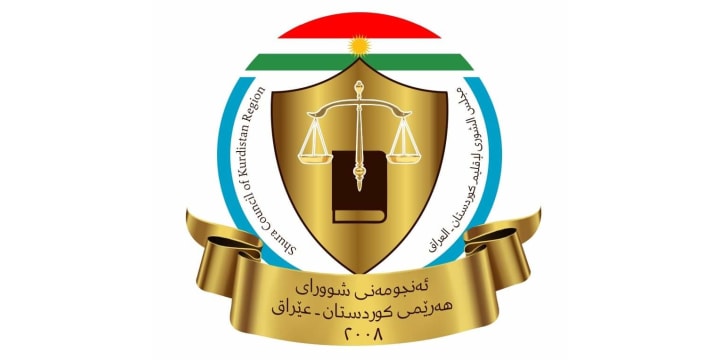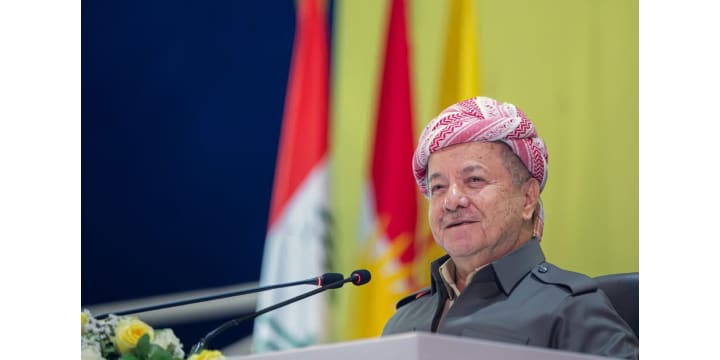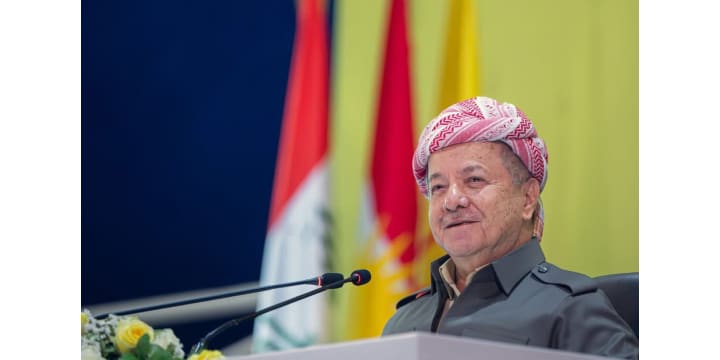
Statement of the Shura Council of the Kurdistan Region - Iraq
In light of the historical and legal responsibility towards the new orientations adopted by the Iraqi Federal Supreme Court in its recent decisions regarding the lawsuits filed against the Kurdistan Region, and the violations of explicit constitutional texts and established legal principles they entail, and believing in the federal system in Iraq, we, the Shura Council of the Kurdistan Region - Iraq, present to the public our most important legal observations regarding these violations:
1- The Federal Supreme Court has usurped legislative authority by legislating legal texts in its judgments in case numbers (83), and its unified cases (131) and (185)/Federal/2023, enacting legal provisions in paragraphs (second), (third), (fourth), and (fifth) of the judgment in the mentioned case, after ruling the unconstitutionality of some articles and paragraphs in the Kurdistan Parliament Election Law - Iraq Law No. (1) of 1992, as amended. This constitutes a clear violation of Article (93) of the Iraqi Constitution for the year 2005, particularly its paragraph (first), which limits the Federal Supreme Court's jurisdiction to overseeing the constitutionality of existing laws and regulations. Therefore, including legal texts in the Federal Court's decision is an encroachment on the legislative authority and a clear violation of Article (47) of the Constitution, which stipulates that each authority exercises its powers based on the principle of the separation of powers.
2- The Federal Supreme Court did not confine itself to the plaintiff's claim in case number (83) mentioned above, where the plaintiff did not request the annulment of the eleven seats (quota seats), but rather requested the redistribution of Kurdistan Parliament seats among the governorates of the region based on the population criterion. However, the Federal Supreme Court ruled in paragraph (first) of the judgment that the phrase "eleven" in the first article of the amended Kurdistan Parliament Election Law is unconstitutional, which was not requested by the plaintiff in their claim. It is undeniable that this constitutes a clear violation of the principle that the claim determines its contents, and the court cannot rule beyond what the plaintiff requests.
3- From the aforementioned case number (83), it is evident that the defendants are: - The Speaker of the Kurdistan Parliament. - The President of the Kurdistan Region. - The Prime Minister of the Kurdistan Region. The Federal Supreme Court ruled in paragraph (eighth) of the clauses in the judgment in the mentioned case to dismiss the lawsuit against the defendants, namely the President of the Kurdistan Region and the Prime Minister of the Kurdistan Region, for lack of jurisdiction. Thus, the dispute was limited to the Speaker of the Kurdistan Parliament. However, the Federal Supreme Court did not consider that it had ruled in its decision number (233) and its unified cases (239), (248), and (253)/Federal/2022 on 30/5/2023, declaring the unconstitutionality of the law continuing the fifth session of the Kurdistan Parliament - Iraq Law No. (12) of 2022. Therefore, neither the Speaker of the Kurdistan Parliament nor the members have any legal existence, while Article (4) of the Civil Procedure Law No. (83) of 1969, as amended, requires that the defendant be a party to admit a judgment by consenting to it. According to this article, the lawsuit should have been dismissed because the Speaker of the Kurdistan Parliament was not considered a legitimate defendant since he had no legal existence when the lawsuit was filed.
4- The Federal Supreme Court violated procedural legal rules in case number (233) and its unified cases (239), (248), and (253)/Federal/2022, where it decided to accept the dismissal of the appointees, Dr. Wadi Suleiman Al-Mazouri and the legal officer, Sharmeen Khudair Bahjat, based on Kurdistan Parliament's letter No. (1369) dated 23/5/2023, and to cancel their authorization to appear before the Federal Court in the mentioned case. While the Federal Supreme Court ruled in paragraph (1) of the clauses in its judgment mentioned the unconstitutionality of the law continuing the fifth session of the Kurdistan Parliament - Iraq Law No. (12) of 2022, and consequently, the Speaker of the Kurdistan Parliament's authority to dismiss the mentioned appointees is invalid.
5- The Federal Supreme Court contradicted itself in some of its decisions. It ruled in case number (83) mentioned above, to annul the quota seats based on the presence of these seats and their approval for components in the amended Kurdistan Parliament - Iraq Law, considering it a violation of Article (16) of the Constitution, which stipulates that equal opportunities are guaranteed to all Iraqis, and the state ensures taking the necessary measures to achieve this. However, if we delve deeper into this article, it becomes clear that granting quota seats to components is what achieves this equality, and legislating these quota seats for components and securing them for them is one of the necessary measures that the state must take to embody equal opportunities, especially when adopting a system of multiple electoral districts by dividing the region into different electoral regions, where the votes of the components are distributed among those regions, and therefore they may not receive any seats. When the Federal Supreme Court decided to annul the quota seats, it also ruled to divide the Kurdistan Region into at least four electoral regions in the same decision. This practically fails to achieve the equality of opportunities stipulated in Article (16) of the Constitution, which constitutes a contradiction in the stance of the Federal Supreme Court. It is noteworthy that the Iraqi Law on the Elections of the House of Representatives and the Councils of Governorates and Districts No. (12) of 2018 in force, and according to its latest amendment, stipulated the principle of quota and granting seats to a number of components (Article 15 amended by Article 9 of the Third Amendment Law No. 4 of 2023).
6- In addition to the above, the composition of the Federal Supreme Court does not comply with the provision (second) of Article (92) of the Iraqi Constitution for the year 2005, which stipulates that the Federal Supreme Court consists of a number of judges and experts in Islamic jurisprudence and legal scholars, and the law regulating their number, selection method, and the court's functioning must be enacted by a two-thirds majority of the members of the Council of Representatives. The court responsible for overseeing the constitutionality of laws in the country must, before any other entity, adhere to the articles and provisions of the constitution, particularly regarding its composition, functioning, and current law, it must be in line with the constitution.
This approach adopted by the Federal Supreme Court, which involves disregarding the constitution and laws, makes it a power above powers, and leads to consequences that are undesirable both legally, politically, and socially. Recently, signs of these issues have emerged, as parties and representatives of important components of the Kurdistan Region (Turkmen, Assyrians, Syriacs, and Chaldeans) announced their non-participation in the elections scheduled to be held in the region on 10/6/2024, which will lead to political problems in the reality of the Kurdistan Region, as the parliament formed after the mentioned elections will lack representation of these components. Therefore, the Federal Supreme Court should adhere to the constitution and exercise its jurisdiction as stated in the constitution, without encroaching on the jurisdiction of other authorities.
Judge Dr. Sardar Yasin Hamad Amin
President of the Shura Council of the Kurdistan Region - Iraq
13/3/2024

